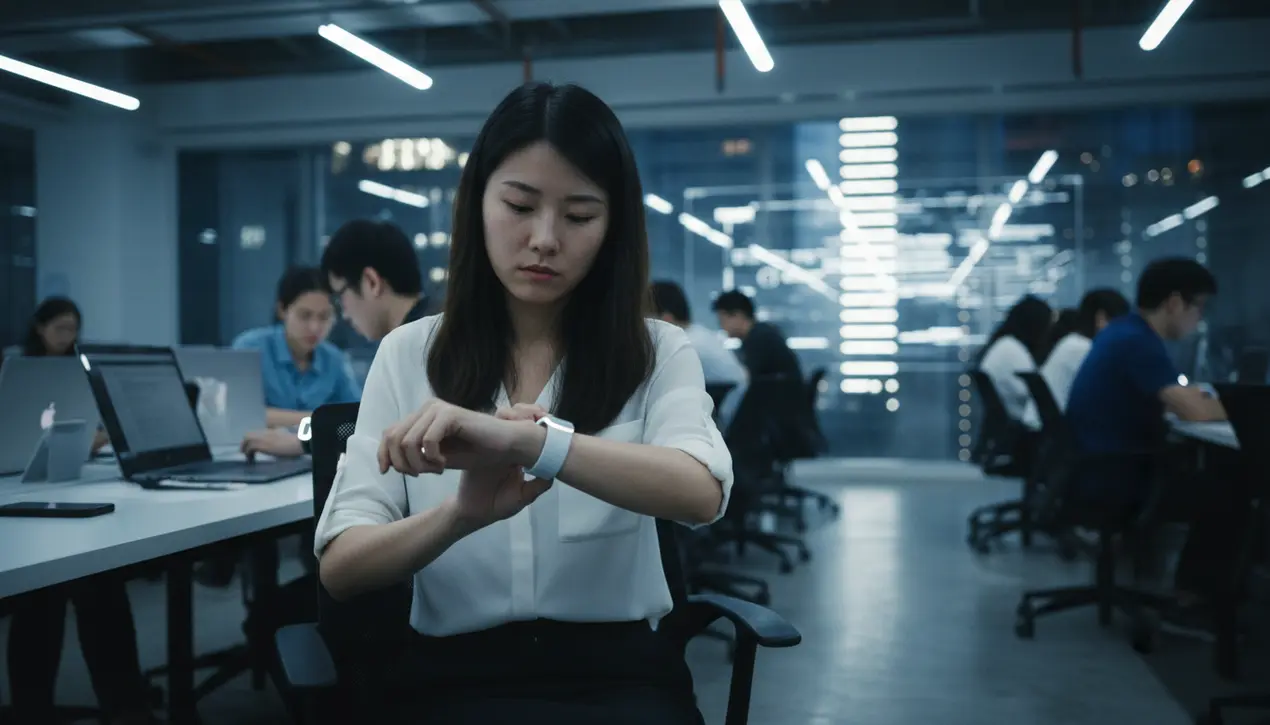
SciencemedicineMedical Technology
A Viral Chinese Wristband Claims to Zap You Awake. The Public Says 'No Thanks’
AN
Andrew Blake
1 day ago7 min read2 comments
The eCoffee Energyband, a viral Chinese wristband promising to jolt users awake through electrical nerve stimulation, has been met with profound public skepticism, a development that speaks volumes about the evolving relationship between technology, productivity, and worker autonomy. Marketed as a sleek, non-invasive alternative to caffeine, the device claims to deliver micro-currents to specific nerves in the wrist, theoretically jolting the central nervous system into a state of heightened alertness.Its manufacturer positions it as the ultimate productivity hack for the modern professional, a tool to conquer fatigue and unlock new levels of efficiency. However, this pitch has landed with a resounding thud among the very demographic it targets.On Chinese social media platforms like Weibo, the reaction has been less about technological marvel and more about dystopian dread, with many users drawing direct parallels to the kind of efficiency-obsessed management that views human beings as mere components in a machine, optimizable through electrical impulses rather than through humane working conditions or adequate rest. The public sentiment seems to be a collective 'no thanks,' a refusal to accept a technological solution to what many perceive as a systemic problem of overwork and burnout, encapsulated in the notorious '996' culture—working from 9 a.m. to 9 p.m. , six days a week.The scientific community has added considerable weight to this public skepticism. Independent researchers and neurologists have pointed out the significant lack of peer-reviewed studies validating the device's core claims.Stimulating peripheral nerves to induce systemic alertness is a complex physiological proposition, and experts argue that without robust, transparent clinical trials, the band's efficacy remains firmly in the realm of speculative biohacking at best, and pseudoscience at worst. This isn't the first time such a product has surfaced; the history of wellness tech is littered with gadgets making bold claims about manipulating the body's electrical systems, from ionized bracelets to brainwave-entrainment headsets, most of which eventually fade away after failing to provide conclusive evidence.Critics, including labor rights advocates, see the eCoffee Energyband not just as a questionable consumer gadget, but as a symbol of a deeper societal issue. They interpret its emergence as a potential tool for China's corporate and state apparatus to further squeeze productivity from an already stretched workforce, offering a technological quick fix instead of addressing fundamental issues like long working hours, mental health, and the right to disconnect.This narrative taps into a growing global conversation about the ethics of employer-mandated wellness and productivity technologies, from keystroke-monitoring software to emotion-tracking AI. The band's failure to capture public imagination, therefore, is significant.It suggests a potential turning point where workers are becoming increasingly wary of solutions that seek to optimize their biology for corporate gain, preferring instead systemic changes that respect their humanity. The story of the eCoffee Energyband is thus more than a tale of a failed gadget; it is a microcosm of a larger struggle over the future of work, the limits of technological intervention in the human body, and the power of public pushback against narratives that prioritize relentless productivity over human well-being.
#featured
#wearable technology
#energy band
#electrical stimulation
#skepticism
#workplace productivity
#China
#consumer health
Stay Informed. Act Smarter.
Get weekly highlights, major headlines, and expert insights — then put your knowledge to work in our live prediction markets.
Related News
Comments
Loading comments...
© 2025 Outpoll Service LTD. All rights reserved.